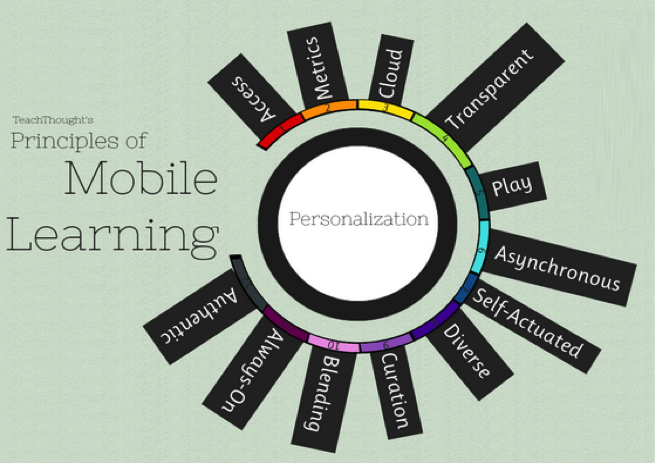The Case for Mobile Learning

In this blogpost, Ebba Ossiannilsson, Associate Professor in Sweden, will discuss some of her latest research on m-learning in open learning educational contexts, from the perspectives of next generations learners on the move in the 21st century.
By: Ebba Ossiannilsson, PhD
The benefits of mobile learning. As mobile devices become increasingly ubiquitous worldwide, there has been a resurgence in mobile learning (m-learning), as a flexible and user-friendly solution for providing greater access to higher education. M-learning can also be seen as a social innovation, in that it stimulates and promotes personal learning, choice-based learning opportunities, and social inclusion, in addition to other benefits enumerated in UNESCO’s 2013 policy guidelines for m-learning:
- Enables the power of anytime, anywhere learning
- Provides immediate feedback and assessment
- Ensures the productive use of time spent in classrooms
- Builds new communities of learners
- Supports situated learning
- Enhances seamless learning
- Bridges formal and informal learning
- Minimizes educational disruption in conflict and disaster areas
- Assists learners with disabilities
- Maximizes cost-efficiency
- Improves communication and administration.
A new paradigm for learning. While m-learning can be defined as any form of electronically delivered learning material, particularly through Internet based technologies, moving toward an open, personalized and interactive mobile education model requires a shift in mindset with respect to learning design and infrastructure, organization and quality.
The open m-learning culture is based on both commitment and desire to learn, giving the learner greater control over where to study, what to study, and how to study in terms of time, mode, and space, while also creating and sharing quality content. Accordingly, m-learning must be developed from the learners’ perspectives to ensure “here and now” and “just-in-time” learning, as well as easy and adequate opportunities for exchanging ideas and research, taking notes, and collaborating with others throughout the world.
This m-learning paradigm also calls for an expanded perspective with respect to quality. Therefore, in addition to useful content and effective course, learning, and media design, quality m-learning will emphasize such attributes as impact, presence, security and accessibility; interactivity, flexibility, personalization, transparency, and interoperability among mobile devices. Consequently, experts in the field are beginning to define the elements of a quality mobile learning experience.
For example, in using and adapting mobile content and devices, Clark Quinn proposed his five Cs framework:

Figure 1. Quinn’s Five Cs of M-Learning
Terry Heick has also argued for a more holistic perspective with his 12 principles of quality m-learning, as described below.

Fig. 2. Heick’s principles of m-learning
Conclusions. Mobile learning offers a cost-effective and user-friendly solution for meeting UNESCO’s future vision for education, as outlined in its Sustainable Development Goal 4. But in implementing that vision, my current research shows an urgent need for modern governance arrangements, as well as dynamic, proactive leadership and management to promote, advocate and empower access, social inclusion, and quality. In addition, one of the most fruitful ways forward may be to involve students as change agents in the move toward increased digitalization and open, mobile education.
Heick, T. (2013). 12 principles of m-learning was retrieved from http://www.teachthought.com/technology/12-principles-of-mobile-learning/
About the Author:
Dr. Ebba Ossiannilsson is an internationally recognized consultant and researcher in the field of open, mobile, distance and online learning, including OER and MOOCs. Her main areas of consulting include; learner support, institutional strategies, curriculum, program and organizational development, quality reviews, evaluation, leadership, mentoring and coaching for personal development, and capacity building.

